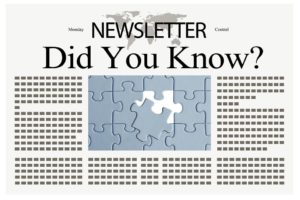Ask most people about the concept of Pay Per Click (PPC) and you will usually hear the same shared opinion: as long as you pay up, you get to see results. And this is in many ways true. Even though no one can truly understand the inner strategies and workings of Google, this much is well-known. Hence, when SEO for movers is put into question, PPC is usually portrayed as a short-burst and short-term solution. There is a time and place for it. And you should never put all your bets and hopes in the success of your PPC campaign. But as long as you are investing, you might as well learn some common PPC landing page mistakes that you should avoid.
Five frequent PPC landing page mistakes most people make
Are you investing all that time and money into your PPC ads campaigns but somehow, the results are not quite as you want them? Well, perhaps you are making some PPC landing page mistakes that you shouldn’t – have you considered that? After all, a quality landing page brings high-conversion rates, so you need to take the necessary precautions to avoid any mistakes. So, here are some basic errors to steer clear of, and some additional advice on how to do so:
#1: Your headlines don’t carry a clear unique selling proposition (USP)
“The reason that you give for why people should buy from you and not from others“. This is the definition set forth by Business Set Free to best explain a unique selling proposition (USP). Research and logic dictate that while 80 out of every 100 people will read your headline copy. However, only 15 out of those 80 will take the time to read the rest. This is why your main headline needs to introduce your USP – to keep your leads on the page and on track.

As you move along with your PPC landing page, you have to take the existing USP and expand it further on the rest of the page. Remember – the main headline needs to be precise and concise while you use the subhead and body to offer clarification. And the primary focus is to ensure that readers realize how you stand out from the competition. If you wait too long to introduce your services to the reader, they will lose interest…and quick.
Spend as much time as you think necessary on the perfect headline
The headline needs to be perfect, so don’t hesitate to spend as much time on it as you think necessary. Just think how software for movers and other companies is promoted – with the right hook! One concise way to cut through and make a lasting impression on the reader.
#2: You should never link away from your landing page
With PPC, the exact number of leads and conversions will depend on your overall campaign goals. So, what you definitely want is a good number of clicks that you are already paying for. And once you turn clicks into leads, you need to manage and guide those leads through the right channels, and hence secure & calculate ROI.
And even though it might seem like a good idea to link towards your website (or others), it only ends up hurting your chances for conversion. You see, clients are easily distracted and the last thing they need is something to side-track them from the goal of the PPC landing page.
Ensure that your PPC landing page can stand on its own
The best way to avoid this mistake and come out on top is to ensure that there are no links on your PPC landing pages. So, no internal or external links. Only a stand-alone page with the right kind of information the reader can focus on.
#3: A one-size-fits-all approach is not something that will get you results
There is nothing more disappointing and confusing than the promise of one thing but the delivery of another. And it doesn’t matter how similar those two services or products might be. They are still not what you asked for. So, consider that before you go off offering an ad for industrial moving services. You should never lead visitors to a page about commercial moving services. Even though similar in theory, we all know that there are clear differentiating factors between the two. And the lack of message match between the ad and the landing page will not only confuse but also dissuade buyers.

Make sure never to stop at a single PPC page
This is why you should always make sure to tailor as many PPC landing pages as you need to convey your message. You don’t even have to change everything – simply tend to the keywords and descriptions of the PPC ads. This is usually more than enough to define the array of services readers can come to expect when they follow a certain ad.
#4: Make sure that your call-to-action (CTA) is compelling enough
In order to get successful conversions, you need to understand what it is that your buyers expect.
- If your game is software, you can offer a “Free Trial“.
- If you are in the moving industry, there is nothing like a “Free Moving Quote” to reel in the clients.
There is little point in using a call to action that nobody finds attractive in your line of business. After all, the CTA, although not as important at that initial headline, still has an essential role to play in getting you leads.
Re-examine what worked for you in the past
Basically, do a little research, ask around about industry trends and find what works best for others. Consider what worked in the past, consult a bit with customers about what it is that they want to see etc. Based on the information you gather, you’ll be able to compose the best solution for your needs.
#5: A good PPC landing page should always consider mobile device users
One of the worst mistakes any business today can make is to neglect the impact of mobile device users on their business. Just consider that well over 60% of searches today are done via smartphones. And visibility on mobile devices differs quite a bit from that of a desktop. While on a desktop, a user’s attention will go to the top left of the page first. But according to an eye-tracking study by Google, a user’s attention on mobile is focused on the center and top half of the screen.

Consider the differences in devices and users
Keep up with technological trends in terms of innovations and marketing trends online. Another useful aspect to help you avoid PPC landing page mistakes is to conduct studies in terms of how people perceive different ads on different devices.






